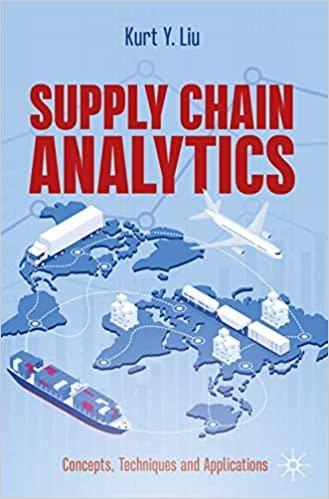Question
Chapter One Case: Do You Trust Your Data? Data is the new oil. Data drives fact-based decisions. As a manager, you are going to rely
Chapter One Case: Do You Trust Your Data?
Data is the new oil. Data drives fact-based decisions. As a manager, you are going to rely on data to drive your business decisions. Can you imagine making a critical business decision on bad data? Have you ever stopped to ask yourself if you trust your data? What will happen if you make a business decision on incorrect, inaccurate, or low-quality data? Obviously, chances are high you will make the wrong decision, and that is the primary risk when using data to drive your decisions. Here are a few examples of organizations that fell into the trap of making important decisions on incorrect data.
Fidelity: A missing negative sign on a dividend report cost this financial company $2.6 billion.
Harvard: Two professors reached an incorrect conclusion with an average formula that failed to pull all of the data.
London Olympics: An accidental typo of 20,000 instead of 10,000 caused the sale of 10,000 additional tickets for the synchronized swimming event.
MI5: The British intelligence agency accidentally bugged more than 1,000 wrong telephones based on a formatting error on a spreadsheet.
TransAlta: This Canadian power company made a simple cut-and-paste error for buying power at the wrong price, which cost it $24 million.
University of Toledo: A typo in a spreadsheet formula led to an overestimate of enrollment, overinflating revenue by $2.4 million. 3
There is a famous saying in the tech industry: Garbage in is garbage out (GIGO). I can be the greatest data analyst in my company, but if the data I am analyzing is wrong, then my analysis will be wrong. But many of us forget to ask about the quality of our data, and we respond too quickly and confidently. There is a common statistic stating that over 80 percent of spreadsheets have errors. Why are there so many errors in spreadsheets? It is simple. Spreadsheets are created by people and people make mistakes! It is important to remember that you should never assume that you have high-quality data. You should always do the upfront work to verify the quality of your data. This will require a great deal of work before you even begin your analysis but can pay off tremendously as you make decisions with greater confidence.
Bad data is costly. With data driving so many decisions in our lives, the cost of bad data truly impacts us all, whether or not we realize it. IBM estimates that bad data costs U.S. businesses over $3 trillion yearly. Most people who deal with data realize that bad data can be extremely costly, but page 22this number is truly stunning. The majority of businesses analyze customer data, but there is little chance of the business succeeding if the data is wrong.
Questions
Why do you believe data can be inaccurate?
What can a business do to ensure data is correct?
Explain how bad data will impact information, business intelligence, and knowledge.
Have you ever made a decision based on bad data? If so, be sure to share it with your peers and explain how you could have verified the data quality.
Argue for or against the following statement: It is better to make a business decision with bad data than with no data.
Step by Step Solution
There are 3 Steps involved in it
Step: 1

Get Instant Access to Expert-Tailored Solutions
See step-by-step solutions with expert insights and AI powered tools for academic success
Step: 2

Step: 3

Ace Your Homework with AI
Get the answers you need in no time with our AI-driven, step-by-step assistance
Get Started


